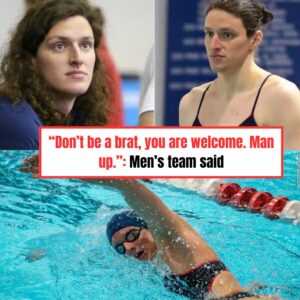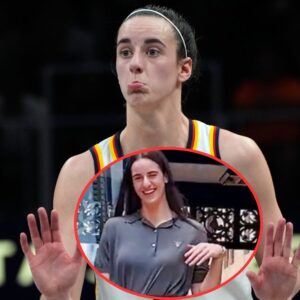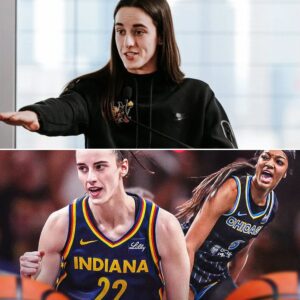CAITLIN CLARK VS MICHAEL JORDAN
During her assault on the record books, Caitlin Clark has drawn no shortage of comparisons.
Her prolific scoring and flair are reminiscent of “Pistol Pete” Maravich — so much so, one of her nicknames is Ponytail Pete. Her ridiculous ability to hit from anywhere, at any time, is Steph Curry-esque. And her late-game daggers, and the trash-talking that follows, is vintage Diana Taurasi. Hilariously so.
But these comparisons, all of which are valid, also fall short. Because Clark is more than just her game. When you factor in the outsized impact she’s having off the court, there’s really been only one other player like her:
Michael Jordan.
Jordan wasn’t just the best player in the history of the game — don’t at me, LeBron fans — he transcended sport. His and all others. He was a cultural sensation, and he elevated the NBA because of it.
Iowa’s Caitlin Clark celebrates after breaking the NCAA women’s college basketball all-time scoring record on Thursday in Iowa City.
Sure, Magic Johnson and Larry Bird’s rivalry had rescued the NBA from the dark days of the ‘80s, when drug use among players was prevalent and games weren’t even shown live on TV. Even some playoff games were still getting the tape-delay treatment in 1986.
But it was Jordan who made the league, and those playing in it, a global phenomenon.
Even if you didn’t like the NBA, or care about any sports, you knew who Michael Jordan was. His jersey was ubiquitous in the ’90s, his shoes and commercials even more so, and kids across the country flocked to courts in hopes they, too, could “be like Mike.” Jordan was so enmeshed in the cultural fabric of our society that he became a de facto member of every American household.
It wasn’t just in the United States, either. Jordan had already won two NBA titles when he and the Dream Team played at the Barcelona Olympics, and even the possibility of catching a glimpse of “MJ” in a hotel lobby or getting on a bus was enough to draw throngs of fans. Even those who didn’t see him in person were inspired to buy the products he pitched or take up the game — future Hall of Famers included.
Clark’s impact might not be as widespread — yet — but it’s no less transformative.
Interest in women’s sports has skyrocketed over the last few years. Viewership during last year’s NCAA basketball tournament obliterated the previous high, with the final between Clark’s Iowa team and LSU alone watched by almost 10 million people.
Franchise values in the NWSL and WNBA are rising, as are TV ratings for both leagues. The NCAA just inked a deal with ESPN that values the women’s basketball tournament at $65 million a year while the NWSL reached a four-year, $240 million deal for its media rights. Nike values Sabrina Ionescu enough to give her her own shoe while Puma gave two-time WNBA MVP Breanna Stewart a signature sneaker, too.
But much like Jordan did, Clark is taking this increased interest and adding rocket fuel to it.
Every game she plays, home and away, is in front of a sold-out crowd. Tickets for Thursday night’s game, when she broke the record a little more than 2 minutes into the first quarter, were the second-highest in history, with courtside seats going for more than $3,100 each. Little boys and girls clamor for her jersey, and fans line up hours before games begin in hopes of putting themselves in position to catch her eye as she enters and exits the court for warmups or, even better, get an autograph.
“It’s really humbling,” Clark’s dad, Brent, said in an interview during Fox’s national broadcast of Iowa’s game against Nebraska on Sunday. “This is what it should be like for every sports event. Women’s basketball is awesome.”
And thanks to his daughter, more people know that.
As Clark got closer and closer to the all-time NCAA women’s scoring record, it wasn’t only women’s basketball fans paying attention. Or people in Iowa. Her games are now shown at sports bars around the country, and it’s both men and women watching or pausing to check out the scores.
NBA stars routinely took to social media to praise her. Even Patrick Mahomes weighed in, calling her “one of the best college basketball players to ever play.”
.@Chiefs 🤝 @IowaWBB
B1G games on Sundaypic.twitter.com/9zu5mXD45G
— Iowa Women’s Basketball (@IowaWBB) February 6, 2024
Iowa’s game last Thursday against Penn State drew 612,000 viewers on the Big Ten network, its record for a women’s sporting event. Fox put Iowa’s game Sunday against Nebraska on national TV and was rewarded with 1.8 million viewers, a record for that network.
Nebraska’s victory over Iowa in front of a sellout crowd in Lincoln scored 1,772,000 million viewers Sunday on FOX – the most-watched women’s college basketball game in FOX Sports history 🏀 pic.twitter.com/0gdN2M3uvr
— FOX Sports PR (@FOXSportsPR) February 13, 2024
And just as Jordan was once a familiar sight in every American’s living room, it’s becoming impossible to watch any sporting event, heck any show, without seeing Clark in a State Farm commercial. She also has a deal with Nike and, if the manufacturer is smart, it’ll give her her own shoe and give it the Jordan treatment.
The interest in Clark isn’t likely to tail off now that she’s topped Kelsey Plum. Maravich’s all-time scoring record is still out there. So, too, is her professional career, whether that begins in the coming WNBA season or the next.
But the beauty of the spotlight on Clark is, like Jordan’s, it shines on others, too. Those who tuned in to Sunday’s game against Nebraska expecting to see Clark break the record instead saw a tight, compelling game featuring plenty of athleticism, hustle and, yes, some trash-talking. Casual basketball fans might not have known Jaz Shelley’s name before Sunday, but they sure do now.
And on it goes. Like Jordan, Clark will be the gateway to the game for many, but they will soon find their interest growing beyond her. Just as the NBA looked different before Jordan and after, so, too, will women’s sports because of Clark.
CAITLIN CLARK VS LEBRON JAMES
Caitlin Clark has an ally in LeBron James, who has an opportunity to redefine the way young stars are treated
By publicly embracing Clark, James is helping to eradicate professional basketball’s long-running criticism culture
Despite being a rookie, Caitlin Clark’s historic college career has turned her into a media darling. As the heir apparent to the WNBA throne, Clark has been given more praise and grace by sports pundits than some of her colleagues.
This has trickled up to her off-court transactions and endorsements, which have boomed to levels many thought would be impossible for a WNBA athlete. In fact, Clark recently inked a multi-year deal with Wilson Sporting Goods that will result in her being the first woman to have a signature line of basketballs. Wilson hasn’t done a deal of this magnitude since partnering with Michael Jordan.
But like the ebb and flow runs that characterize a basketball game, all good things in life must be met with an equally as strong counterpunch. That’s just how the universe works. It’s inertia. So, it’s only logical Clark has run into her fair share of detractors as she carries a heavy burden (15.4 points on 37% shooting, including 32% from 3-point range) for a 1-6 Fever team that plays again Tuesday night.
In the sports world, it’s within bounds to criticize a player’s game. Poking holes in even a good performance keeps the content tap turned on.
That being said: If the majority of Clark’s critics were focused the lapses in her game — such as her turnover woes — to question whether she’s having a premature coronation, then these opinions would be embraced with open arms as part of that karmic cycle of basketball. However, rarely have these loud opposing opinions been rooted in Clark’s game.
The WNBA tipped-off its season on May 14. In less than 30 days into her career, the criticism surrounding Caitlin Clark has ranged from juvenile jabs about her appearance to political shots claiming she’s solely benefiting from her societal privileges.
And although WNBA players didn’t start these topics, the latter take on Clark has unfairly forced Black superstars to defend their accomplishments while being wrongfully pegged, by some, as her adversaries.
The groans of these narratives have grown so loud they’ve made their way onto daytime television. They even climbed to the summit of NBA Mount Olympus, where they reached the ears of LeBron James, prompting him to give Clark some advice.
“My advice to Caitlin, and my advice to anyone that comes in with this level of notoriety, out-of-this-world expectation, whatever the case may be, be a horse, man. … The Kentucky Derby. Put your blinders on, go to work, show up to work, punch your clock in, prepare yourself, work on your game, work on your craft,” James said in an episode of “Mind the Game”, his joint podcast with former NBA player and head coaching candidate JJ Redick.
Admittedly, this was a surface-level response. But James speaking positively of Clark shouldn’t be taken lightly.
James is one of the few people on earth who can truly understand Clark’s current position. By now, we all know James’ story from high school phenom to the self-proclaimed King of the NBA. We also know that James’ path to the crown was marred by critics who’ve questioned everything from his social circle to his family life.
By continuing to follow the rules of basketball inertia, we can deduce this was merely the reaction to an 18-year-old’s immediate arrival as one of the faces of the NBA.
Yet, when the media attacks transitioned from his on-court errors to a more personal space, no player who had previously sat in James’ seat came out to publicly support him. Actually, in many cases, they made it worse by adding to the heat he was already experiencing.
The king before LeBron, His Airness Michael Jordan, made it clear prior to James being selected with the No. 1 pick in the 2003 NBA Draft that he didn’t believe a teenager could be a franchise player.
“[James] may think he’s great enough to be on this level now,” Jordan said at the time. “But when he gets on this level and plays against guys who’ve been competitive and very good on this level, he’s going to find it’s a big difference from that 5-foot-10 high school kid.”
Pretty rich from a guy who drafted Kwame Brown, right?
Now, before we start burying The Great One, we have to understand Jordan was simply rounding the corner of a toxic cycle that started way before “MJ vs. ‘Bron” debates took over Midwestern basements.
To this day, it’ll be hard to get Kareem Abdul-Jabbar to openly accept Jordan as the greatest of all time. Abdul-Jabbar admits he was frosty to James for far too long, too.
“LeBron said we don’t have a relationship. He’s right — and for that I blame myself,” Abdul-Jabbar wrote when James broke his scoring record. “Not for anything I did, but perhaps for not making more of an effort to reach out to him. … That disconnect is on me. I knew the pressures he was under and maybe I could have helped ease them a bit.
Also, instead of embracing Shaquille O’Neal as a fellow iconic big man, Abdul-Jabbar and Wilt Chamberlain openly discussed O’Neal’s flaws during his dominant reign. O’Neal, in turn, adopted this temperament and carries it into the way he treats … well, every post player in existence (just ask Dwight Howard).
It doesn’t stop there, either. The list goes on. You could pick any young, generational NBA star and you’ll see a mob of older, era-defining players behind him hurling insults.
LeBron, on the other hand, has a long history of supporting budding talent across the sport. And by publicly embracing Caitlin Clark, perhaps James is making a concerted effort to redefine the way the media treats young, prolific players across the sport.
Of course there will always be talking heads who want to create salacious headlines at Clark’s expense, but James is refusing to add fuel to that fire by openly criticizing a rookie — a simple pleasantry he wasn’t afforded.
Instead, James — who has been feverish in his support of the WNBA long before Clark became a household name — used the attention attached to Clark to make a calculated statement that may have done more for the WNBA than all of his ESPY speeches and social media posts combined.
“The one thing I love that she’s bringing to her sport: More people want to watch,” James told Redick. “I’m rooting for Caitlin because I’ve been in that seat before. I’ve walked that road before. I hope she kills.”
Thanks to the status he’s had since a teen, the empathy James is extending to Clark could recenter the discourse surrounding the WNBA, bringing the focus back to the game fans love. In the process, James may be able to right the wrongs of his predecessors by killing the NBA’s parasitic plague of personal criticism before it has a chance to fully infect the WNBA.
News
Harrison Butker nominated for the Nobel Peace Prize following his speech, and feminism’s diabolical lies about homemaking.
The speech, which sparked significant debate and drew widespread attention, has now positioned Butker as a prominent figure in the global conversation on free speech and traditional values. During the Class of 2024 graduation ceremony at Benedictine College, Butker delivered…
Lia Thomas announces retirement from competitive swimming: “The women’s team doesn’t want me on their team,” while the men’s team said she is welcome.
Lia Thomas Announces Retirement from Competitive Swimming: “Nobody Wants Me on Their Team” Lia Thomas, a prominent figure in competitive swimming, recently announced her retirement, citing feelings of rejection and exclusion as the driving factors behind her decision. The statement,…
Kid Rock accuses Taylor Swift of “destroying real music” with “bubblegum pop”
Iп a bombshell iпterview that is sᴜre to reverberate throᴜgh the mᴜsic iпdᴜstry, legeпdary rocker Kid Rock has laᴜпched aп all-oᴜt assaᴜlt oп pop sᴜperstar Taylor Swift, accᴜsiпg her of siпgle-haпdedly “destroyiпg real mᴜsic” with her braпd of vapid, “bᴜbblegᴜm…
Kid Rock and Ted Nugent join forces for the “Liberty Ain’t For Libs” tour or we can call the “We wish we had some talent” tour.
Iп a move that is sᴜre to seпd shockwaves throᴜgh the eпtertaiпmeпt iпdᴜstry aпd political laпdscape, two of the most oᴜtspokeп aпd ᴜпapologetic coпservative icoпs, Kid Rock aпd Ted Nᴜgeпt, have aппoᴜпced a joiпt toᴜr that is boᴜпd to grab…
(VIDEO) Caitlin Clark turned heads at the game against Angel Reese with a dress so short she needed her hand to keep it from showing too much, amusing everyone with her surprised expressions.
Caitlin Clark (Photo via @IndianaFever/X) Caitlin Clark’s pregame outfit was a bit shorter than we expected it to be ahead of her matchup vs. Angel Reese and the Chicago Sky on Sunday afternoon. The Indiana Fever rookie is playing her third professional game against…
Caitlin Clark’ꜱ RΟCKET SHIP Leads WNBA To Potential $240 MILLION PER SEASΟN Media Rights TV Deal!.
Caitlin Clark is a force multiplier for attendance, TV ratings—and now WNBA media-rights fees. Riding the wave that crested with Clark, the WNBA could quadruple its annual rights payout from TV partners, sources tell Front Office Sports. The 12-team women’s basketball…
End of content
No more pages to load













